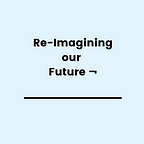Re-Imagining Non-Violence
How can we be the change that we seek in the world, in our community, in our families?
The term ‘Nonviolence’ is often misunderstood. The term is a translation of the yogic concept ‘Ahimsa’, a Sanskrit term which translates to ‘a lack of violence’. It however has a positive connotation i.e. a state of unconditional love; just like ‘a lack of darkness’ means ‘light’. Furthermore, ahimsa can be achieved at three levels: Lack of violence in thought, speech and action.
At a time when the world is experiencing the challenges of hatred, bigotry, terrorism, migration and violence based on race, ethnicity, nationality and gender; we believe that, as human beings, we all have the power to choose the possibility of hope, love, action and progress. Across every age, race, religion and region, we are united by common human values and aspirations that are much greater than our differences.
The principles of nonviolence or Ahimsa that were used to transform society by both Mahatma Gandhi and Rev. Martin Luther King Jr. seem even more relevant today to bring social justice, peace and harmony in the world. Their work inspires us to choose love over fear and hatred.
Often when discussing violence and compassion, the conversation is geared towards ‘others’. We seldom look at introspecting ourselves. Although, often the most violence takes place in our inner-world.
We rarely question the choices that we make about our own lifestyles, what we eat, how our choices might be polluting the world, etc. Sometimes our actions can lead to violence, without our awareness or intentions.
Consciously, or unconsciously, we have designed systems and organizations, on a micro and macro level, that often encourage and/or perpetuate violence. With Ahimsa, and the idea of Ubuntu — I am because you are — what does it mean when we harm ourselves, other people, and/or the environment?
If we would treat ourselves with unconditional love and acceptance, then we would save our energy (physical, mental, emotional, etc.) that goes into criticizing, doubting, and harming ourselves. If we would treat other people with unconditional love and acceptance, we would save this energy that goes into gossipping, judging and harming others. If we would treat the non-human environment with unconditional love and acceptance, we would save this energy that goes into extracting, re-building and grieving.
Even more importantly, when we treat ourselves, other people, and the environment with unconditional love and acceptance, we would not only save this energy, we would instead create positive vibrations or additional energy. Our actions would become truly regenerative.
It is time to reimagine Ahimsa and find ways to apply it to our personal and professional lives.
What would happen if we all integrate the principles of Ahimsa in our life — what would this look like for you?
#ChooseLove in your life. #ChooseLove in your work. #ChooseLove in your community.
Lead Author: Mandar Apte (first 3 paragraphs)
Mandar is the Executive Director of Cities4Peace, an initiative of the International Association for Human Values. In 2016, Mandar produced the From India With Love documentary film to reinvigorate the ancient message of nonviolence (or Ahimsa) in the world. For over a decade, Mandar has taught leadership programs using meditation practices volunteering for the International Association for Human Values and the Art of Living Foundation. For more info: www.mandar-apte.com
Mandar has also developed a one hour peace and nonviolence education module that empowers peace and social justice activists to learn about how to promote Ahimsa in our cities, communities and the world.
Anchor Author: Daniel Rudolph
Daniel Rudolph is interested in exploring alternative, experiential learning opportunities for people of all ages. He is passionate about forming community, and building public spaces for meaningful, transformational gathering. Currently he is spending a lot of his time learning about juggling & embodiment, and is currently facilitating gatherings, both in person and virtually. He also enjoys writing, reading and sharing poetry. Daniel is a very curious and playful person and is always open for creative collaborations.
